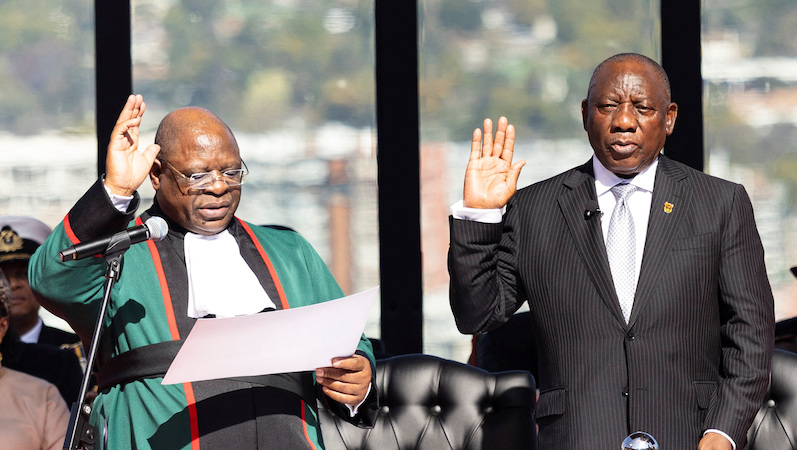Shift Away From Coal in South Africa Poised for Acceleration Amidst New Coalition Government
Introduction
In a groundbreaking move, South Africa is set to witness significant changes in its energy policy as the African National Congress (ANC) enters an unprecedented power-sharing coalition. The shift is expected to accelerate the country’s transition from coal to renewable energy, a critical step for South Africa, the largest emitter of greenhouse gases in Africa due to its heavy reliance on coal for electricity.
The New Energy Landscape
President Cyril Ramaphosa’s recent appointments have reshaped the energy landscape. For the first time, the pro-business opposition Democratic Alliance (DA) has joined the government, marking a historic coalition. Analysts suggest this could usher in a much-needed acceleration in the country’s energy transition efforts.
A pivotal change sees Gwede Mantashe, previously in charge of mineral resources and energy and a staunch advocate of coal, losing control over the energy sector. His tenure saw limited progress in the renewables sector, often described as "paralyzed" by critics. Now, the responsibilities are split: Mantashe retains control over mining and hydrocarbons, while Kgosientsho Ramokgopa, formerly the electricity minister, takes over the newly separated energy policy mandate.
Uncertainty and Optimism
Hilton Trollip, an energy researcher from the University of Cape Town, highlights the uncertainty surrounding Ramokgopa’s potential impact on renewable energy. Despite this, there is optimism that Mantashe’s controversial Integrated Resource Plan, which favored a slower pace of renewable investment and increased gas-fired power, will be revisited and possibly revised.
The DA’s Dion George is the new environment minister, replacing Barbara Creecy, who has moved to the transport sector. Creecy was instrumental in COP26’s adaptation goals, and her departure indicates potential shifts in environmental strategy.
Challenges and Opportunities
South Africa’s transition is closely tied to the Just Energy Transition Partnership (JETP), a $9.3 billion agreement aimed at boosting clean energy investments while considering the socio-economic impacts on those dependent on the fossil fuel industry. However, tangible progress has been slow, compounded by the country’s struggle with rolling blackouts. State-owned utility Eskom’s decision to delay the decommissioning of at least three coal-fired power plants further complicates the situation, potentially jeopardizing international funding commitments.
Kevin Mileham, the DA’s shadow minister of mineral resources and energy, insists that the JETP needs urgent acceleration to align with global climate goals. He advocates for enhanced dialogue with international partners and a robust climate change adaptation strategy, emphasizing improved tracking and reporting on carbon emissions reduction efforts.
Balancing Act with Policy and International Relations
The coalition government faces the challenge of presenting a united front on foreign policy to ensure effective partnerships with international funders. The ANC and DA’s differing stances on global issues, such as support for Palestine, will need reconciliation to facilitate smooth implementation of the JETP.
The private sector’s role in the transition is another critical issue. The DA’s inclination towards greater private sector involvement in energy could lead to friction with stakeholders, particularly South Africa’s largest trade union group, COSATU. The union advocates for state and social ownership models over privatization and stresses the need for multiple government departments to oversee the just transition, citing the triple crises of unemployment, climate change, and energy shortages.
Conclusion
South Africa stands at a crucial juncture in its energy journey. The coalition government’s ability to navigate internal and external challenges, foster policy certainty, and accelerate the JETP will determine the success of its shift away from coal. As the world watches, South Africa’s actions in the coming months will have profound implications for its environmental and economic future.
For more details on South Africa’s ongoing energy transition, visit the official website of the Democratic Alliance (DA).
